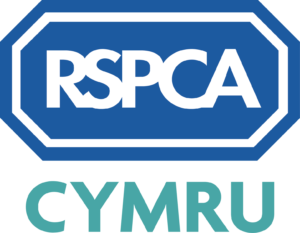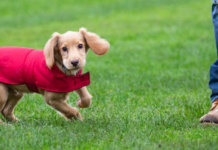Ahead of National Greyhound Day (2 June), the Cut the Chase coalition is urging Welsh Government to phase out greyhound racing
A coalition of animal charities is urging the Welsh Government to commit to a phased end to greyhound racing – with the hopes that this year’s National Greyhound Day will mark the end of the industry in Wales.
The call from the Cut the Chase coalition comes as greyhounds are celebrated this weekend on National Greyhound Day (2 June), a day which aims to raise awareness and adoption of the breed.
The Cut the Chase coalition – made up of the RSPCA, Dogs Trust, Blue Cross, Hope Rescue and Greyhound Rescue Wales – has long expressed concern about the negative welfare consequences that racing and the greyhound industry has on dogs. Across the UK over 2,000 dogs died or were put to sleep and over 22,000 injuries were recorded from greyhound racing between 2018 and 2022.
Wales could be the first nation in the UK to phase out the activity. Earlier this year, the Welsh Government carried out a 12-week consultation which is considering the future of greyhound racing. The consultation closed in March.
The Welsh Government has yet to publish the outcome of the consultation – and in the meantime greyhounds at the Valley Stadium – Wales’ last remaining dog track – continue to risk death or serious injury regularly being knocked over or falling at speeds often in excess of 40mph.
Published results from races and trials at the Valley track, analysed by Greyhound Rescue Wales shows from 3 March to 29 May this year that nine dogs were recorded as “fell” and 15 more were recorded as “knocked over”.
But these stats don’t show the full picture. Injury data from individual tracks and veterinary reports aren’t released publicly, so the welfare of the dogs who have fallen in races remains unknown.
Professor Malcolm Eames, who leads Greyhound Rescue Wales’ monitoring of the track, said: “The risks these dogs are exposed to should be completely unacceptable in Wales today. It’s obvious to anyone who’s watched even a handful of races at the Valley. Every week dogs collide at high speeds on the track’s tight bends, and we routinely see dogs fall or knocked down.”
Dr Samantha Gaines – the RSPCA’s dog welfare expert – said: “The longer it takes the Welsh Government to make a decision on the future of greyhound racing in Wales, the more dogs are at risk of getting injured.
“There are only 10 countries in the world – including all UK nations – where commercial greyhound racing still goes on in 2024. But the Welsh Government has a golden opportunity to commit to phasing out greyhound racing in Wales once and for all, sending an important message to the rest of the UK that they need to act to deliver a better life for greyhounds.”
Concerns associated with the industry include disjointed and ineffective oversight within the greyhound sector, a lack of transparency regarding industry practices, and concerns around the enforcement of regulatory standards.
Dr Gaines said: “We have long called for better data from the greyhound industry including injury data which is specific to individual tracks. In the absence of full transparency it is challenging to understand the passage of individual greyhounds and their welfare experience.
“Greyhound racing is inherently dangerous for the dogs involved. Running at speed around oval tracks causes significant injury to many dogs, and in some cases, the injuries are so severe that it is necessary for dogs to be put to sleep.
“The number of greyhounds dying or injured because of racing is not acceptable, especially when you consider that greyhound racing is a leisure activity in which 91% of the UK population do not follow or participate in.”
Reviews carried out by members of the coalition also found that some dogs used in UK racing are kept in poor, barren conditions, with little if any enrichment and fed a poor diet, and highlighted concerns around the general health of the dogs. There are also serious issues around the number of puppies that are unaccounted for between birth and racing registrations, so often referred to by the sector as the “wastage”.
Dr Gaines added: “The Cut the Chase coalition believes that all dogs deserve a good life. Greyhound racing is incompatible with this. The only way to protect greyhound welfare is to phase out greyhound racing across the UK, starting in Wales.”
At its peak, there were 250 licensed tracks in the UK. Today, only 21* remain, with only one that is unlicensed in Great Britain.
The Cut the Chase coalition has called for greyhound racing to be phased out over the next five years, and remains committed to the welfare of the dogs involved in the industry during this time.
Help keep news FREE for our readers
Supporting your local community newspaper/online news outlet is crucial now more than ever. If you believe in independent journalism, then consider making a valuable contribution by making a one-time or monthly donation. We operate in rural areas where providing unbiased news can be challenging. Read More About Supporting The West Wales Chronicle


























